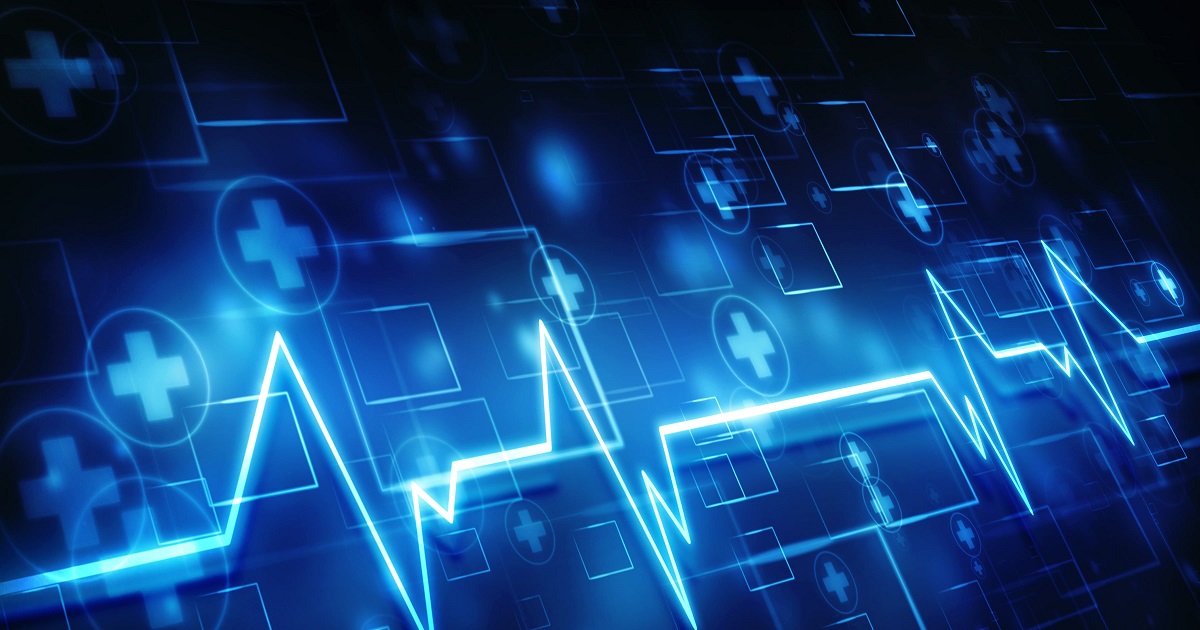
Health Technology, Digital Healthcare
Article | August 16, 2023
Introduction
The field of smart wearable devices has advanced significantly in recent years as a result of the advent of mobile medicine, the development of new technologies like smart sensing, and the increased penetration of personalized health concepts.
These Internet of Things (IoT)-based smart devices not only help people pursue a healthier lifestyle, but also offer a constant flow of healthcare data, which can be used for disease diagnosis and treatment, by actively recording, tracking, and monitoring metabolic status and physiological parameters. Wearable technologies have the potential to completely change the ways to monitor health behavior and are increasingly finding clinical implementation for patients with various types of diseases.
Wearable Technology: New Ways of Patient Monitoring
While wearable technology has demonstrated value in the fields of entertainment, fitness, and gaming, it is making inroads into the healthcare industry at a rapid pace. Increasing advancements in sensor technology and artificial intelligence (AI) are assisting millions of people in detecting and managing chronic health conditions and avoiding serious illnesses using devices that are as small as a patch the size of a penny or small enough to be worn on the wrist.
According to a study, nearly 320 million consumer health and wellness wearable devices are estimated to be shipped across the globe in 2022, and the number is likely to surpass 440 million units as a number of new devices come out and more healthcare providers start using them.
Most wearable devices, such as smartwatches, now include heart rate monitors, and some have FDA approval for detecting abnormalities such as atrial fibrillation, a major cause of stroke. As these devices become more intelligent, the percentage of patients and consumers who use them to manage chronic health conditions and diagnose symptoms of serious diseases is likely to rise.
This is expected to assist the sales of wearable devices in healthcare to exceed $195 billion by the end of 2027, presenting huge prospects for healthcare equipment providers and associated companies to benefit from the opportunity.
The Future of Wearable Technology in Healthcare
Though wearable technology is experiencing rapid growth, the field is still considered to be in its nascent stage, presenting massive remunerative prospects for the manufacturers of smart devices, especially in the healthcare industry.
Hence, companies of all kinds, from giants to upstarts, are emphasizing on investing and developing new wearable devices with new features and functionalities to meet the surging demand for wearables across healthcare in coming years.
Read More

Health Technology, Digital Healthcare
Article | September 7, 2023
With their speed and maneuverability, drones have long captured attention for their potential to deliver shopping orders and photograph the world from above. But the machines can also serve a medical purpose by shuttling drugs, defibrillators and other equipment to emergency sites or care facilities. Improvements in battery life, GPS navigation and artificial intelligence functions are making drones a more practical option in healthcare, says Dr. Daniel Kraft, faculty chair for medicine and neuroscience at Singularity University, an executive education program that also serves as a business incubator and consultancy service. Theft is also a concern, says Will Stavanja, chief technical officer at AirBox Technologies, which is testing its DroneX fleet for medical deliveries in the Caribbean. “Right now, most drones land, drop the package and leave,” says Stavanja, whose team has developed smart mailboxes for secure delivery. Addressing that risk will be key to determining whether drones can handle sensitive cargo. “You want a very high degree of certainty,” Kraft says. “It’s one thing if you lose a urine sample or a blood sample; you can get another one. It’s another to lose an organ.”
Read More

Health Technology
Article | September 12, 2023
Technology in the 21st century is the fuel that drives innovation and ease in almost every industry today. The healthcare sector isn’t far behind. In fact, the medical industry has taken the concept of the Internet of Things and took it to a new level altogether to reimagine the use of medical technology.
Imagine multiple devices like phones, cameras, GPS sensors, and computers interacting with each other through a seamless transfer of data. Now consider wearable medical devices. The exchange of critical medical information through a web of real-time data networks activates near instantaneous responses from doctors, nurses, and medical services. The aim is to anticipate the need for medical attention long before it is needed and remedy the concerns before they reach a critical stage.
That is exactly how the future of the Internet of Medical Things (IoMT) is shaping out to be.
How IoMT is Redefining Everyday Health?
IoMT is a next-generation solution that embeds cutting-edge monitoring and analysis of individual healthcare journeys through medical devices. The smart watch is the most recognizable wearable medical device that is used by millions of people daily to keep tabs on their vitals.
For instance, the Apple Watch series 6 maps blood oxygen levels, sleep patterns, ECG levels, and also reminds the user to wash their hands after returning home.
The market for healthcare IoT products is vast and is constantly expanding. The Tango Belt is a leading example of smart wearable technology that is revolutionizing elderly and disability care. The belt is designed to sense falls and deploy airbags to soften the impact. In addition, it alerts caregivers in the event of a fall. The belt also uses data analytics by collecting mobility data that is then synced to a smartphone app for displaying metrics.
Technologies that Empower IoMT
With the diverse tasks that medical devices must perform, applications exist across a wide spectrum, from artificial intelligence to 5G networks to the cloud.
Consider a pacemaker, for instance. Modern pacemakers are embedded with a multitude of technologies that communicate with each other to send critical patient data to physicians. A pacemaker is a bioelectronic implant that is placed in the chest to control the heartbeat. But a smart pacemaker goes a step further. It is equipped with wireless bluetooth technology that communicates with the patient’s wearable medical device. The smart device or phone will then transfer this data to physicians for check-ups and even alert doctors in the case of anomalies.
To Round It Off
IoMT will subsequently power all medical devices and usher in a future where technology forms the backbone of healthcare service delivery. Although wearable medical technology has been around for decades, the development of a streamlined communication channel between them has redefined their use. Smart medical devices are no longer just an aid but a source of vital individual medical data as well as a way to anticipate care and medical attention.
Read More
.jpg)
Health Technology
Article | September 12, 2023
Since ChatGPT’s launch in November 2022, artificial intelligence (AI) tools have become disruptive to nearly every industry. While there's been controversy about whether AI would benefit the healthcare industry, it has proven to be just as capable in healthcare as in other sectors.
In the medical field, there is reason to believe AI tools may be an even more reliable and useful resource than other sectors. Medical students have been panicking over AI's threat to their career prospects. But as these systems mature, the experts increasingly believe that AI may serve as a counterpart to human medical expertise rather than a threat.
How AI Tools Are Expected to Aid Medical Professionals?
Again and again, as the debate over modern AI tools rages on, we encounter the analogy of the calculator. No one feels threatened by calculators, not even professional mathematicians. Instead of throwing up their hands, math experts embrace the power of these now archaic computerized devices. If the experts are correct, this may be similar to the future of the alliance between AI and humans.
According to the designers and programmers who understand how these systems work as well as how information technology tends to progress, AI can be expected to help the medical profession in the following ways:
Cosmetic Surgery Consultations
One of the farthest-reaching applications we see develop is in consultations for plastic surgery and similar applications. Perhaps one of the easiest aspects to understand is hair-loss consultations. In our practice, we use a device known as HairMetrix, which uses an AI-driven analytical system to help determine what is causing a patient to lose their hair and which treatment options would be the most effective.
Because it is AI-driven, it is fully based on visual scans and is completely non-invasive. Just like this, AI can be used in an abundance of other ways to minimize the use of exploratory surgery and improve healthcare outcomes.
Improved Diagnostics
Artificial intelligence is already helping medical providers deliver diagnoses more quickly. These tools can identify anomalies that might otherwise take human hours or even weeks to identify. This has improved the rate of cancer detection, among other things, which will predictably improve survival rates.
Developing New Pharmaceuticals
The development of new medicines is notoriously slow. Not only is testing a painstaking process, but even seeking FDA approval can take years. AI is expected to help the development of pharmaceuticals through simulation on the molecular level, allowing researchers to see how the active mechanisms in a drug will work in the body.
Improved Administrative Efficiency
In the medical field, administrative tasks are notoriously slow. It is believed that generative AI will be able to automate many administrative functions and innumerable office chores. It could streamline sorting patient files, accelerate the interpretation of data, and much more.
Patient Access
In an area where information technology is already improving patients' lives, access to medical advice is still a bottleneck in the system. AI tools have the potential to slowly bridge the gap in health disparities. Combined with the power to diagnose, this could dramatically increase the capability of online patient portals.
Of course, this list of anticipated AI capabilities is far from exhaustive. Researchers and medical professionals have high hopes for these tools, and some are already proving to be more than mere speculation.
In a world where AI is reshaping industries at an unprecedented pace, the healthcare sector stands poised to benefit significantly from this technological revolution. From streamlining administrative tasks to revolutionizing diagnostics, the potential of AI in medicine is vast and diverse. As we witness AI-enabled tools like HairMetrix, enhancing the cosmetic surgery consultations and AI algorithms expediting diagnostic accuracy, it's clear that we are only at the beginning of a healthcare transformation that is set to improve patient care, increase survival rates, and revolutionize medical practices.
Read More